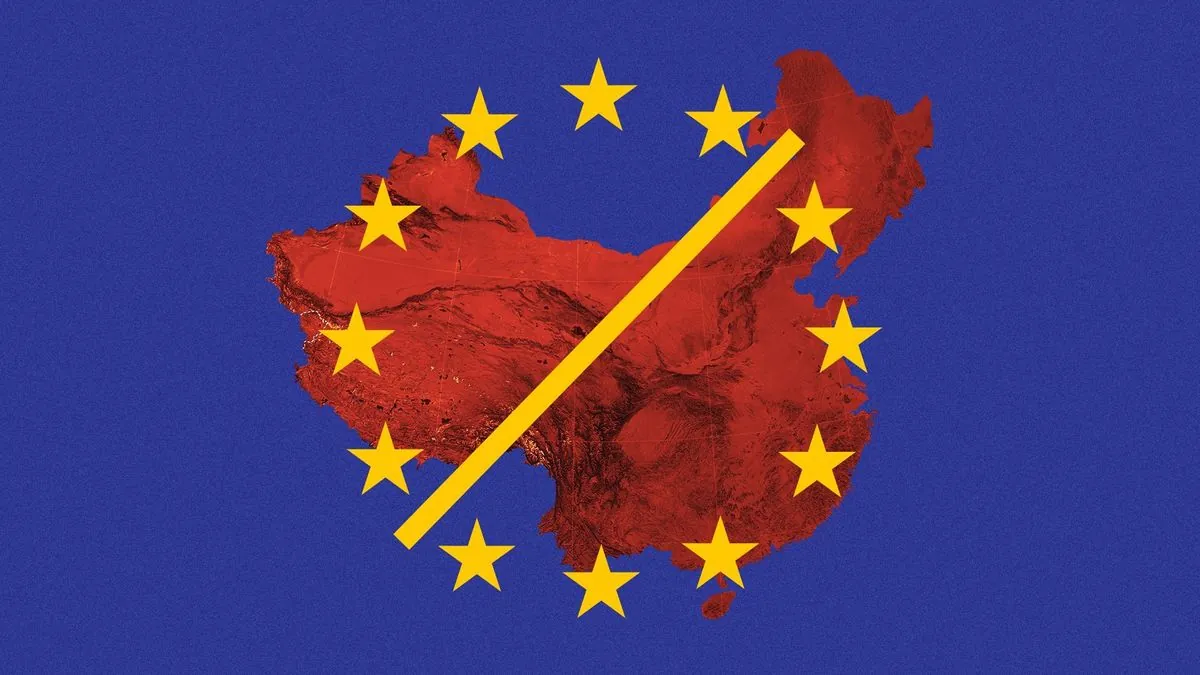In a hypothetical scenario set in 2028, the world faces a potential crisis as China prepares for a full-scale invasion of Taiwan. This situation prompts a critical examination of the global community's response, particularly the role of the European Union (EU) in deterring such aggression through economic sanctions.
The G-7 nations, comprising seven of the world's advanced economies, would likely spearhead efforts to prevent the conflict. However, the effectiveness of traditional sanctions may be limited due to China's evolving economic strategies. By 2028, Chinese firms are expected to conduct the majority of their cross-border trade in renminbi, potentially shielding them from Western financial sanctions.
Financial sanctions, a cornerstone of the Western sanctions toolkit, may lose their potency against Beijing. The development of CIPS, China's alternative to the SWIFT global messaging system, could further insulate Chinese transactions from Western interference. Similarly, export controls might prove ineffective, as China continues to make technological advancements despite current restrictions.
Trade measures, particularly those leveraging the EU's market access, could emerge as the most viable option for influencing Beijing's decision-making. The EU remains a crucial destination for Chinese exports, accounting for a significant portion of China's trade surplus. Import bans on non-critical consumer goods from China could potentially impact up to 20% of Chinese exports if implemented across G-7 economies.
Recent data underscores the EU's continued leverage over China:
- EU imports from China grew by 41.9% between 2019 and 2023
- The EU's reliance on Chinese-made technology-intensive goods is increasing
- German foreign direct investment in China in the first half of 2024 surpassed the entire 2023 figure
This contrasts sharply with the United States, which has been actively reducing economic ties with China since 2019.
"The EU's economic relationship with China is complex and multifaceted. While we value our trade ties, we must also be prepared to use our economic leverage to maintain global stability and protect our shared values."
The EU's stance in a potential Taiwan crisis could prove more crucial than currently anticipated by both China and the EU itself. However, leveraging this influence would require overcoming divergent views among EU member states regarding their economic relationships with China.
Historical precedents, such as the EU's handling of the European debt crisis, the COVID-19 pandemic, and Russia's war in Ukraine, demonstrate the bloc's capacity to unite in the face of catastrophic events. Given the potential significance of Europe's position, it is imperative for the EU and its member governments to begin planning their response to a possible Taiwan crisis well in advance of 2028.
As the global landscape continues to evolve, the EU's role in maintaining international stability and deterring potential conflicts may become increasingly vital. By recognizing and strategically utilizing its economic leverage, the EU could play a pivotal role in shaping the future of global geopolitics and preventing potential catastrophes.
